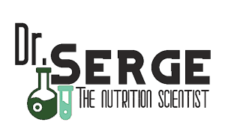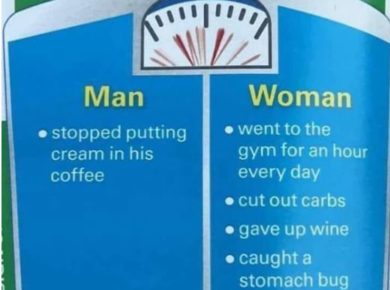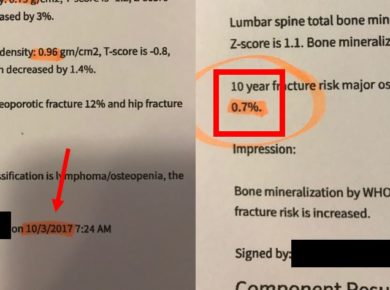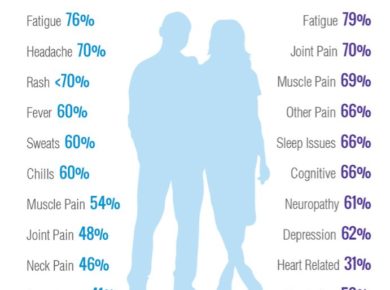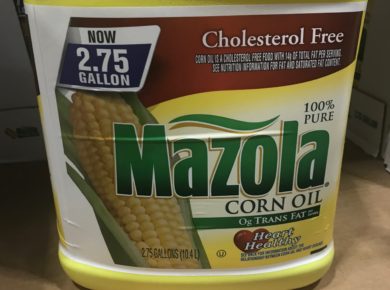Approximately 0.5% of people die by suicide. In a given year, this is roughly 12 per 100,000 people. Three-quarters of suicides globally occur in the low and middle-income countries.
Rates of completed suicides are generally higher among men than among women, ranging from 1.5 times as much, in the developing world, compared to 3.5 times in the developed world.
There are an estimated 10 to 20 million non-fatal attempted suicides every year. Non-fatal suicide attempts may lead to injury and long-term disabilities. In the Western world, attempts are more common among young people and females.
Veteran suicide is an acute crisis wrapped in a national crisis. Between 2005 and 2016, suicide rates in the general population climbed 21%. For veterans, already taking their lives at twice the U.S. rate, it climbed 26%. More than 6,000 veterans are dying by their own hands each year – nearly 20 a day.
Suicide is a national crisis. It is way too common ☹
Is there a link between suicidal feelings and the gut?
It is known that if the gut microbiome is dysbiotic (unbalanced), both physical and emotional health can suffer severely.
Scientists have found that gut bacteria produce neurotransmitters such as serotonin, dopamine, and GABA, all of which play a key role in mood (many antidepressants increase levels of these same compounds).
Certain organisms also affect how people metabolize these compounds, effectively regulating the amount that circulates in the blood and brain. The evidence is strong that suicidal feelings can be a result of gut dysbiosis.
Gut bacteria may also generate other neuroactive chemicals, including one called butyrate, that have been linked to reduced anxiety and depression. Some microbes can activate the vagus nerve, the main line of communication between the gut and the brain. Also, the microbiome is intertwined with the immune system, which itself influences mood and behavior.
Sodium butyrate, made by our gut flora, has several properties. It can help to prevent diabetes and cancer. It supports a healthy immune system and therefore eliminates the presence of bad microbes in our gut. It also reduces inflammation. And we know that anxiety, depression, and several other neurological issues are caused by an excess of inflammation in the brain. So, butyrate is a natural antidepressant.
How do we optimize our butyrate production by our gut microbes?
The key is to eat highly-fermentable fiber residues, such as those from resistant starch, oat bran, pectin, and guar, that are transformed by colonic bacteria into short-chain fatty acids (SCFA) including butyrate, producing more SCFA than less fermentable fibers such as celluloses.
One study found that resistant starch consistently produces more butyrate than other types of dietary fiber. The production of SCFA from fibers in ruminant animals such as cattle is responsible for the butyrate content of milk and butter.
Fructans are another source of prebiotic soluble dietary fibers which can be digested to produce butyrate. They are often found in the soluble fibers of foods which are high in sulfur, such as the allium and cruciferous vegetables.
Sources of fructans include wheat (although some wheat strains such as spelt contain lower amounts), rye, barley, onion, garlic, Jerusalem and globe artichoke, asparagus, beetroot, chicory, dandelion leaves, leek, radicchio, the white part of a spring onion, broccoli, brussel sprouts, cabbage, fennel and prebiotics, such as fructooligosaccharides (FOS), oligofructose, and inulin.
Butter from grass-fed cows and kombucha also have a high amount of butyrate.
Another factor we need to consider is the production of serotonin by our gut microbiome.
Although serotonin is well known as a brain neurotransmitter, it is estimated that 90 percent of the body’s serotonin is made in the digestive tract.
“More and more studies are showing that mice or other model organisms with changes in their gut microbes exhibit altered behaviors,” explains Elaine Hsiao, research assistant professor of biology and biological engineering and senior author of the study.
Peripheral serotonin is produced in the digestive tract by enterochromaffin (EC) cells and also by particular types of immune cells and neurons. Hsiao and her colleagues first wanted to know if gut microbes have any effect on serotonin production in the gut and, if so, in which types of cells.
They began by measuring peripheral serotonin levels in mice with normal populations of gut bacteria and also in germ-free mice that lack these resident microbes.
The researchers found that the EC cells from germ-free mice produced approximately 60 percent less serotonin than did their peers with conventional bacterial colonies. When these germ-free mice were recolonized with normal gut microbes, the serotonin levels went back up—showing that the deficit in serotonin can be reversed.
“EC cells are rich sources of serotonin in the gut. What we saw in this experiment is that they appear to depend on microbes to make serotonin—or at least a large portion of it,” says Jessica Yano, first author on the paper and a research technician working with Hsiao.
The researchers next wanted to find out whether specific species of bacteria, out of the diverse pool of microbes that inhabit the gut, are interacting with EC cells to make serotonin.
After testing several different single species and groups of known gut microbes, Yano, Hsiao, and colleagues observed that one condition—the presence of a group of approximately 20 species of spore-forming bacteria—elevated serotonin levels in germ-free mice.
The mice treated with this group also showed an increase in gastrointestinal motility compared to their germ-free counterparts, and changes in the activation of blood platelets, which are known to use serotonin to promote clotting.
Wanting to hone in on mechanisms that could be involved in this interesting collaboration between microbe and host, the researchers began looking for molecules that might be key. They identified several particular metabolites—products of the microbes’ metabolism—that were regulated by spore-forming bacteria and that elevated serotonin from EC cells in culture. Furthermore, increasing these metabolites in germ-free mice increased their serotonin levels.
Previous work in the field indicated that some bacteria could make serotonin all by themselves. However, this new study suggests that much of the body’s serotonin relies on particular bacteria that interact with the host to produce serotonin, says Yano. “Our work demonstrates that microbes normally present in the gut stimulate host intestinal cells to produce serotonin,” she explains.
Depression is linked to lower than normal serotonin activity; a common medication class for depression known as selective serotonin reuptake inhibitors, or SSRIs, works by increasing the serotonin activity between neurons, but they are known to have gastrointestinal side effects.
If you are suffering from an emotional imbalance, look to the gut. Show your microbiome some LOVE by:
- Eating real food – fresh whole fruits and veggies, organically grown – toxic pesticides, herbicides, etc. all harm good gut bugs; organic, grass-fed meats and eggs from pasture-raised chickens. Avoid hydrogenated oils and non-foods. Clean excess sugar from your diet.
- Using natural body care products, free of phthalates, sulfates and other endocrine-disrupting chemicals which harm the microbiome.
- Avoiding chemical pain relievers and other chemical medicines, when possible, which can harm the microbiome.
- Minding your stress levels – too much stress kills good gut bugs. Yoga, exercise, meditation, a hobby – whatever appeals to you to lower stress, do it!
- Taking a walk in the woods or by the ocean whenever you can, improves your microbiome.
- Growing a garden and getting your hands dirty; dirt can help diversify the microbiome and double as an antidepressant.
- Working with a gut health coach (like me) or a functional medicine practitioner to optimize your microbiome.
- Surrounding yourself with positive people who can influence your happiness.
We also need to pay attention to the mind, which is the worship of the devil.
The Apostle Paul declares: “For the weapons of our warfare are not carnal, but mighty through God to the pulling down of strongholds; Casting down imaginations, and every high thing that exalteth itself against the knowledge of God, and bringing into captivity every thought to the obedience of Christ” (II Corinthians 10:4-5).
The Greek word for “captivity” means “to control, conquer, to bring into submission.” We are to take control of every thought and make it obedient to Christ. That is not easy, because our minds are often disobedient and rebellious. When I want to think a certain way, my mind wants to go in a different direction.
Of course, our greatest asset is our minds, and so Satan wants to captivate our minds, our thought processes. The battle for sin always starts in mind, so Lucifer launches his most artful attacks against our minds. He will use any means available to impair our thought processes – to lead us into sin or to get us to believe a lie.
But we have the greatest weapon on our side. We have Jesus Christ. We have the Holy Spirit. We have the sword of God
Luke 10:19
“Behold, I have given you authority to tread on serpents and scorpions, and over all the power of the enemy, and nothing will injure you.”
If we can just learn to obey and submit to God, He will give us everything. His peace, His love, His joy, and His strength.
Jeremiah 29:11
For I know the plans I have for you,” declares the LORD, “plans to prosper you and not to harm you, plans to give you hope and a future.
Isaiah 41:10
So do not fear, for I am with you; do not be dismayed, for I am your God. I will strengthen you and help you; I will uphold you with my righteous right hand.
1 John 4:4
You, dear children, are from God and have overcome them, because the one who is in you is greater than the one who is in the world.
Ask your Heavenly Father to help you live in the power of the Holy Spirit. The Bible is full of His promises to love, strengthen, heal, and guide. Begin reading God’s Word with a new purpose — to discover new insights about God’s love for you. Ask the Holy Spirit to guide your journey and to reveal truths you’ve never seen before. Accept the fact of God’s love for you without relying on your feelings.
God bless y’all 🙂
Dr. Serge
